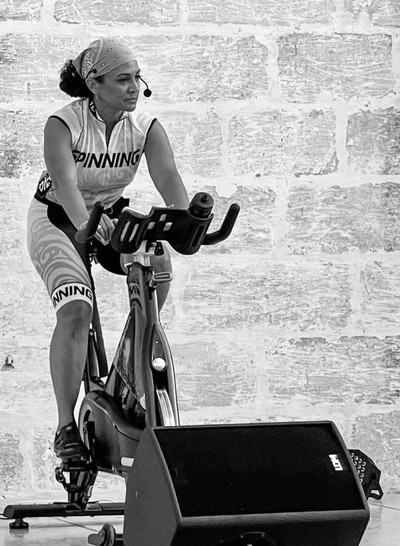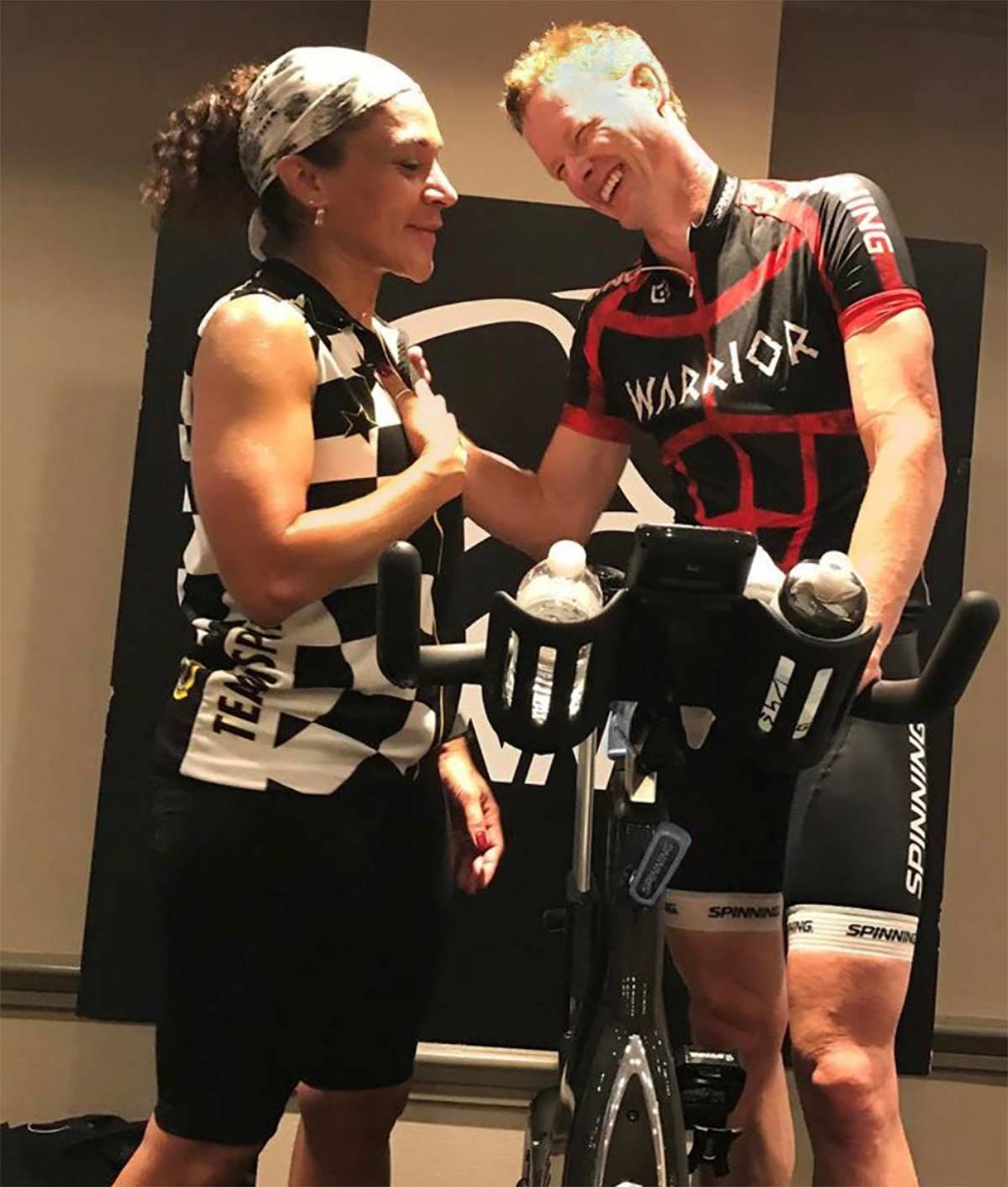
Melanie Guadalupe on Her Gratitude for All Things Spinning®
Posted by Spinning® on Nov 3rd 2023
By Melanie Guadalupe
Life has an unpredictable way of shaking our existence, throwing us into a state of discomfort, and for that, we can be grateful. Grateful, you may ask?! Yes. Grateful. At least that’s what I’ve come to realize since 2016, when chronic pain from a spinal injury catapulted my life into disarray. Fortunately -- and I truly mean that -- a painful journey presented itself as an opportunity to cultivate a gratitude practice.
But what is gratitude? Is it an emotion, a behavior, a virtue? Personally, gratitude is not a natural state of existence. Feeling thankful is a daily practice that requires time and attention, and my injury taught me that better than anything else.
Here are my 3 spokes of gratitude that I’d like to share with you as we head toward the Thanksgiving holiday:
1. The Spinning® Program

Injuries can be debilitating, both mentally and physically. Thankfully, the culture of the Spinning® program provided a safe, non-judgmental space to navigate my healing pathway. The non-competitive nature of Spinning®, and being deeply rooted in exercise science, gave me confidence to exercise. Knowing I could still train/instruct and not feel pressured to keep up with anyone was a gift. The option to instruct off the bike and not feel like a failure meant I could still deliver my classes. Coaching from the floor provided an opportunity to cultivate a more personal connection with my riders. Just like a football coach influences from the sidelines.
2. The Spinner® Bike

Certain aspects of my mobility changed with chronic pain. The Spinner®️ bike’s geometry and simple adjustments provided options so I could still ride on challenging days. For example - raising handlebars when I needed less forward flexion.
At home, I would train in my basement on my Spinner® Chrono. Training with power provided metrics to log and dissect. I was able to set realistic goals, smash goals and revise goals based on my ever-changing pain scale. Rate of Perceived (RPE) became paramount. Most days, pain management would dictate my wattage, which developed self-acceptance and an appreciation that power output is about the moment and can change from ride to ride for all of us.
3. The Spinning® Community

A study by Algoe, Haidt & Gable in 2008 focused on attuning people to the thoughtfulness of others. They refer to it as the Find, Remind and Bind theory. It involves finding quality relationships, which reminds us of social goodness, resulting in binding relationships or a long-term bond.
In my case, finding a community of like-minded enthusiasts to cement quality relationships was another major gateway to feeling thankful despite adversity. Our Spinning® community is connected, passionate and global. This was completely evident during the COVID-19 pandemic. I was reminded, in times of challenge, of the goodness of the relationships within the Spinning® family and how our support for each other and joint passion for the program binds us across the globe. It provided the social glue necessary to persevere, and for that, I’m truly thankful.
In conclusion, I call you to action. I encourage you to think of your own challenges and how Spinning® may have helped you navigate through tough times. Take the time to express gratitude to the members of your class and wider community, which will help create the long-lasting bonds that we all seek.
One way I found to do this was by creating a Spinning® profile. My “Freedom” profile was born from my gratitude for Spinning®. It is centered around freedom to ride based on how one feels in the present moment. It can change each time anyone rides the profile. But it also highlights the beauty of what we do; freedom of movement, progression, cadence, intensity, power output, or terrain. Each of us is an individual, valued and not judged, on or off the bike.
